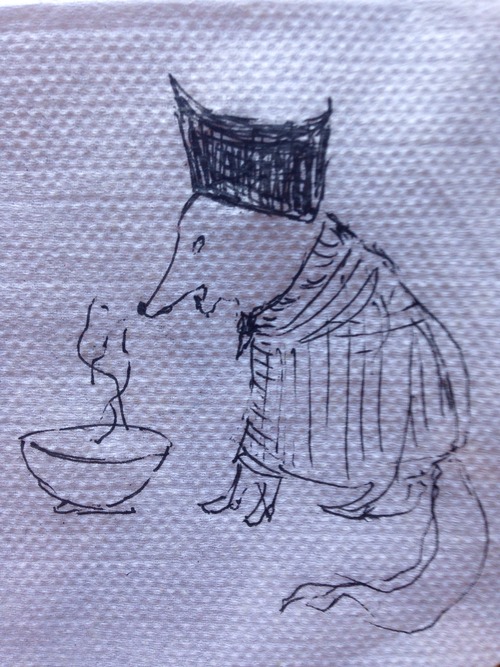
In this series, Shane Jones looks at the diet of some of our favorite writers. In this installment he talks to Jesse Ball, whose most recent book is Silence Once Begun.
THE DIET OF JESSE BALL:
Breakfast:
Plain yogurt with honey and a few raw almonds
or
Pain au chocolat
+ cappuccino, cortado, macchiato or black coffee
Daytime:
A piece or two of 80%+ chocolate—my favorites domori, madecasse & other fancy brands. Domori 100% is best of all, but hard to find in USA.
+ cortado, macchiato, etc
Supper:
Raw fish + avocado + rice + ginger
or
Jabanero + ginger + leek + carrot + tahini + spinach + tomato + garlic + potato + celery, etcetera, soup with some sort of fancy bread and hummus
or
Chili (special recipe) involving ghost peppers and chocolate and honey and whatever interesting meat (veal, bison, venison) I can find
or
Tonkatsu ramen
Evening:
Fancy whiskey or cognac or fine imperial russian stout
Another piece of 80-100% chocolate
THE BELIEVER: I like how the majority of your diet is small meals, or meals that aren’t too heavy, especially the first half of your day. Is this a conscious decision in regards to how you feel in general? (I’m always surprised by people who eat a huge breakfast of bacon, eggs, pancakes, etc, that can really weigh you down). Do you write during the “light” meals or the later, heavier, dinners?
JESSE BALL: I seldom write—usually once per year. This is a diet from a non-writing period.
Last summer in Berlin, when I wrote the novel, A Cure For Suicide, I ate chocolate chip cookies sporadically—as the cafe that I was writing at had delicious warm cookies available. In the evenings I ate ramen or kebab.
If I am to be somewhere for five hours, it behooves me to purchase something—and once I have had 3 coffees, it is better that I order something else. And when the smell of cookies is in the air…
BLVR: Wait, you only write once per year? Can you elaborate on this process? Of course I’d also like to talk more about chocolate chip cookies. There’s a bakery a few blocks from where I’m writing this now, called Crisan (they refer to themselves as an “edible art gallery”) that makes the best chocolate chip cookies. I bought three yesterday.
JB: When I am going to write a novel, then I sit down for a week or two and do that and nothing else. The rest of the year I spend wandering around learning about...
You have reached your article limit
Sign up for a digital subscription and continue reading all new issues, plus our entire archives, for just $1.50/month.
Already a subscriber? Sign in




